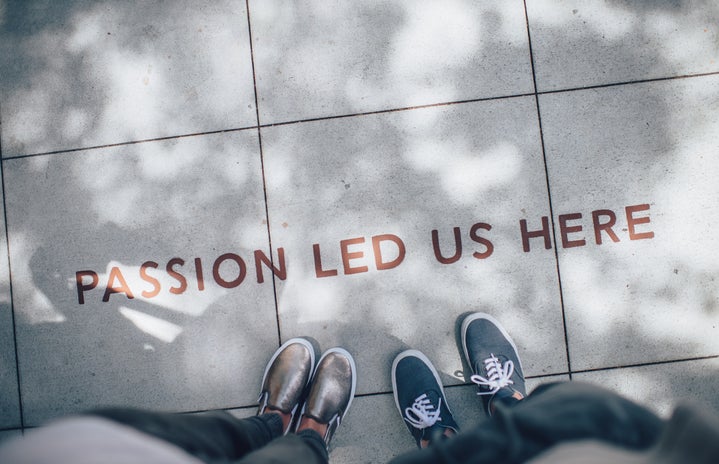I used to hate taking risks. I was always the goody two-shoes who never did anything wrong, but who never did anything extraordinary. In fact, it wasn’t until I started university that I realized that risk-taking is an essential part of my university experience and without it, I would never fully understand my academic, social and career-oriented capabilities. “Risk-taking” is subjective. For some, a risk could be asking a question in lecture in front of many classmates. For others, it could be studying abroad for a whole semester. No matter the risk, it is important to avoid eliminating the idea of uncertainty, and instead, embrace spontaneity and take opportunities, however daunting they may seem. From my experience, risk-taking has exposed me to new environments that I would have never been a part of if I hadn’t said “yes”. Although these risks have had both positive and negative outcomes, I have definitely become more adept at coping when things don’t work out the way I want them to. And that, in my books, is definitely a positive outcome.
In November of 2022, a professor at McMaster University reached out to me explaining that he was recruiting summer research assistants for the university’s ecohydrology lab. The job was to be for four months in the Georgian Bay Mnidoo Gamii Biosphere, north of Parry Sound. Obviously, I was ecstatic that a professor reached out to me, so I applied and got the interview. The interview, however, did not go as planned. When the time came to be interviewed over Zoom, my laptop microphone wasn’t working. In panic, I had to switch over to my iPad so that the interviewers could hear me, which took quite a long time. The rest of the interview went alright, though I was still slightly shaken-up. After a few days, the professor emailed me and… I didn’t get the job. I was a little disappointed, though I definitely did not regret applying for a position that greatly interested me. A few months later, the professor contacted me again, asking me if I was interested in working at their Alberta site for the months of May and June. Without a single minute of reflection, I emailed back saying that I was most definitely interested. After that, I had a meeting with another member of the lab, a PhD candidate, and ultimately secured the job. However, a few days later, it hit me. I was to leave Ontario, fly to Alberta and live there with two random men that I had never met or seen before. Although I was nervous to leave my friends and family behind for two months, I was thrilled to have taken the opportunity and gain experience in a field that is relevant to my future career. Working in Alberta allowed me to see firsthand how environmental research is conducted, and thus permitted me to realize that I truly want to do fieldwork in the future. During my time there, I would wake up everyday at 6:30 am, drive to the field site with my coworkers, and we would collect and analyze data from various sphagnum and feather moss samples. Although this may seem like a nightmare to others, taking this opportunity allowed me to realize that I was passionate about this work. For me, flying to a province I’ve never been to before with two people I’ve never met, in order to work a job I had absolutely no experience in, was a huge risk. However, if I hadn’t accepted the job, I wouldn’t have the knowledge or the resume that I have now. I am forever grateful that I took the risk, as it has allowed me to be more open-minded about future opportunities. It also served to increase my desire for new experiences and uncertainty.
If there is one thing I want you to take away from this article, it’s this: be more open to unpredictability in university. Even merely thinking about taking an opportunity that you would have completely shut down before is a risk – and that is a huge step. Don’t be disappointed if you are too nervous to “come out of your shell”, as risk-taking can be a process to be learned with time and experience. However, it is important to remember to avoid shutting down opportunities or risk-taking because it’s not “you” or “part of who you are”. I used to be a goody-two shoes: I only did what I knew, in fear of failure. University has taught me to not be afraid of failure, as it is a catalyst for individual growth, and permits us to learn from our past mistakes. Every successful person has many stories of failures that have ultimately enhanced their resilience as a person. Moreover, failure has taught me how to overcome various obstacles in order to achieve what I want. Without it, I wouldn’t have gone to Alberta or accomplished what I did. As a result, I am forever grateful to myself and to others for encouraging me to take risks. Remember, failure is normal. University is the optimal time to try new things and get involved, so that you may thrive as a student now and in the future, wherever your career takes you.


